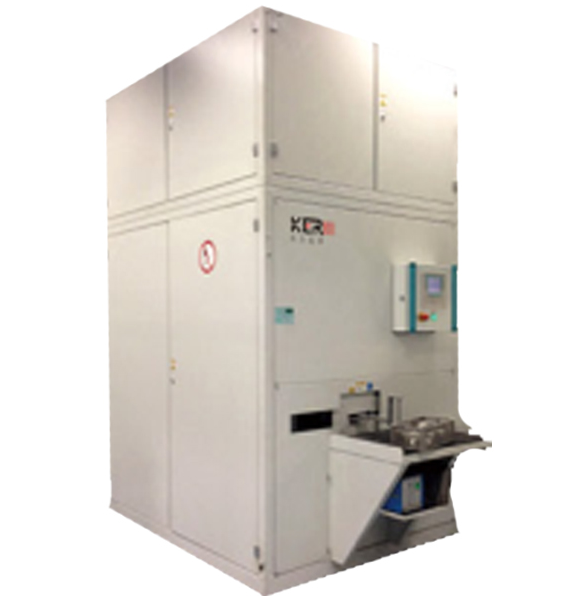
为什么要进行低温废水回收呢?
作者:创始人来源:http://www.xayoudao.com/时间:2025-06-03
在工业生产与日常生活中,低温废水的产生不可避免。这类废水通常指温度介于10℃至40℃之间的水流,其温度虽低于常规工业余热,却蕴含着不容忽视的回收价值。
In industrial production and daily life, the generation of low-temperature wastewater is inevitable. This type of wastewater usually refers to water flows with temperatures between 10 ℃ and 40 ℃. Although its temperature is lower than that of conventional industrial waste heat, it contains significant recycling value that cannot be ignored.
低温废水回收的首要驱动力源于能源结构的优化需求。传统能源利用模式存在显著的“温度断层”——高温热源被高效利用,而低温余热则直接散失。以城市污水处理厂为例,其出水温度常年维持在15℃至25℃,单座日处理量10万吨的厂区,年散失热量相当于5000吨标准煤。通过热泵技术提取这部分热量,可满足周边20万平方米建筑的冬季供暖需求,能源替代效应显著。
The primary driving force for low-temperature wastewater recovery is the optimization demand for energy structure. The traditional energy utilization model has a significant "temperature gap" - high-temperature heat sources are efficiently utilized, while low-temperature waste heat is directly dissipated. Taking urban sewage treatment plants as an example, their effluent temperature is maintained at 15 ℃ to 25 ℃ throughout the year. For a single plant with a daily processing capacity of 100000 tons, the annual heat loss is equivalent to 5000 tons of standard coal. Extracting this heat through heat pump technology can meet the winter heating needs of 200000 square meters of surrounding buildings, and the energy substitution effect is significant.
在工业领域,低温废水回收更是节能降耗的关键路径。食品加工行业的冷却水、化工生产的工艺冷凝水、制药企业的洁净循环水等,均属于优质低温热源。某乳制品企业通过实施废水热能回收项目,将原本直接排放的28℃工艺废水进行梯级利用,首级预热原料奶,次级用于厂区供暖,使综合能耗降低18%,投资回收期仅2.6年。
In the industrial field, low-temperature wastewater recovery is a key path for energy conservation and consumption reduction. Cooling water in the food processing industry, process condensate in chemical production, and clean circulating water in pharmaceutical companies are all high-quality low-temperature heat sources. A dairy company implemented a wastewater heat recovery project to cascade the 28 ℃ process wastewater that was originally directly discharged. The first stage preheated the raw milk, and the second stage was used for heating the factory area, reducing comprehensive energy consumption by 18%. The investment payback period was only 2.6 years.

环境保护需求是推动低温废水回收的另一重要因素。直接排放低温废水虽不造成明显热污染,但会改变受纳水体的生态平衡。研究表明,当排放水温与环境温差超过5℃时,可能引发水生生物代谢紊乱。通过热能回收系统将废水温度调节至环境±2℃范围内,可有效维护水体生态系统的稳定性。
The demand for environmental protection is another important factor in promoting the recycling of low-temperature wastewater. Although direct discharge of low-temperature wastewater does not cause significant thermal pollution, it will alter the ecological balance of the receiving water body. Research has shown that when the temperature difference between the discharge water and the environment exceeds 5 ℃, it may cause metabolic disorders in aquatic organisms. By using a thermal energy recovery system to regulate the temperature of wastewater to within ± 2 ℃ of the environment, the stability of the aquatic ecosystem can be effectively maintained.
技术进步为低温废水回收提供了可行性保障。热泵技术的能效比(COP)已突破4.0,即消耗1千瓦时电能可转移4千瓦时热能。新型吸附式热泵甚至可利用20℃以上的低温热源,拓展了回收边界。在材料领域,石墨烯改性换热器的应用使热交换效率提升30%,同时具备抗腐蚀、抗结垢特性,显著降低了系统维护成本。
Technological progress provides feasible guarantees for the recovery of low-temperature wastewater. The energy efficiency ratio (COP) of heat pump technology has exceeded 4.0, which means that consuming 1 kWh of electricity can transfer 4 kWh of heat energy. The new adsorption heat pump can even utilize low-temperature heat sources above 20 ℃, expanding the recycling boundary. In the field of materials, the application of graphene modified heat exchangers has increased heat exchange efficiency by 30%, while also possessing anti-corrosion and anti scaling properties, significantly reducing system maintenance costs.
从经济性视角分析,低温废水回收项目呈现显著的正向收益。以商业综合体为例,回收空调冷凝水热量用于生活热水制备,投资回报率可达15%至20%。在政策层面,多地政府已将低温余热回收纳入节能减排补贴范畴,进一步提升了项目的经济可行性。
From an economic perspective, low-temperature wastewater recycling projects have shown significant positive benefits. Taking commercial complexes as an example, recycling the heat from air conditioning condensate for the preparation of domestic hot water can achieve a return on investment of 15% to 20%. At the policy level, many local governments have included low-temperature waste heat recovery in the scope of energy conservation and emission reduction subsidies, further enhancing the economic feasibility of the project.
低温废水回收的价值不仅体现在能源利用层面,更代表着循环经济的发展方向。通过构建“废水-热能-资源”的转化链条,实现了水环境治理与能源革命的协同推进。随着碳交易市场的完善和绿色金融的支持,低温废水回收将成为工业园区、城市片区能源规划的重要组成部分,为碳中和目标实现提供重要支撑。
The value of low-temperature wastewater recycling is not only reflected in energy utilization, but also represents the development direction of circular economy. By constructing a conversion chain of "wastewater heat energy resources", the coordinated promotion of water environment governance and energy revolution has been achieved. With the improvement of the carbon trading market and the support of green finance, low-temperature wastewater recovery will become an important component of energy planning in industrial parks and urban areas, providing important support for achieving carbon neutrality goals.
本文由低温废水回收设备友情奉献.更多有关的知识请点击:http://www.xayoudao.comd2天堂黄色将会对您提出的疑问进行详细的解答,欢迎您登录网站留言.
This article is a friendly contribution from CNC high-pressure cleaning machine For more information, please click: http://www.xayoudao.com We will provide detailed answers to your questions. You are welcome to log in to our website and leave a message
推荐产品
推荐文章
 公司:济南d2天堂黄色超声波设备有限公司
公司:济南d2天堂黄色超声波设备有限公司  热线:18663767799
热线:18663767799 地址:山东省济南市济阳区创业路与启航街交叉口南40米
地址:山东省济南市济阳区创业路与启航街交叉口南40米








 常见问题
常见问题

 联系d2天堂黄色
联系d2天堂黄色
 咨询电话:18663767799
咨询电话:18663767799 E-MAIL:jnkergs@163.com
E-MAIL:jnkergs@163.com 地址:山东省济南市济阳区创业路与启航街交叉口南40米
地址:山东省济南市济阳区创业路与启航街交叉口南40米 鲁公网安备 37011202001385号
鲁公网安备 37011202001385号
